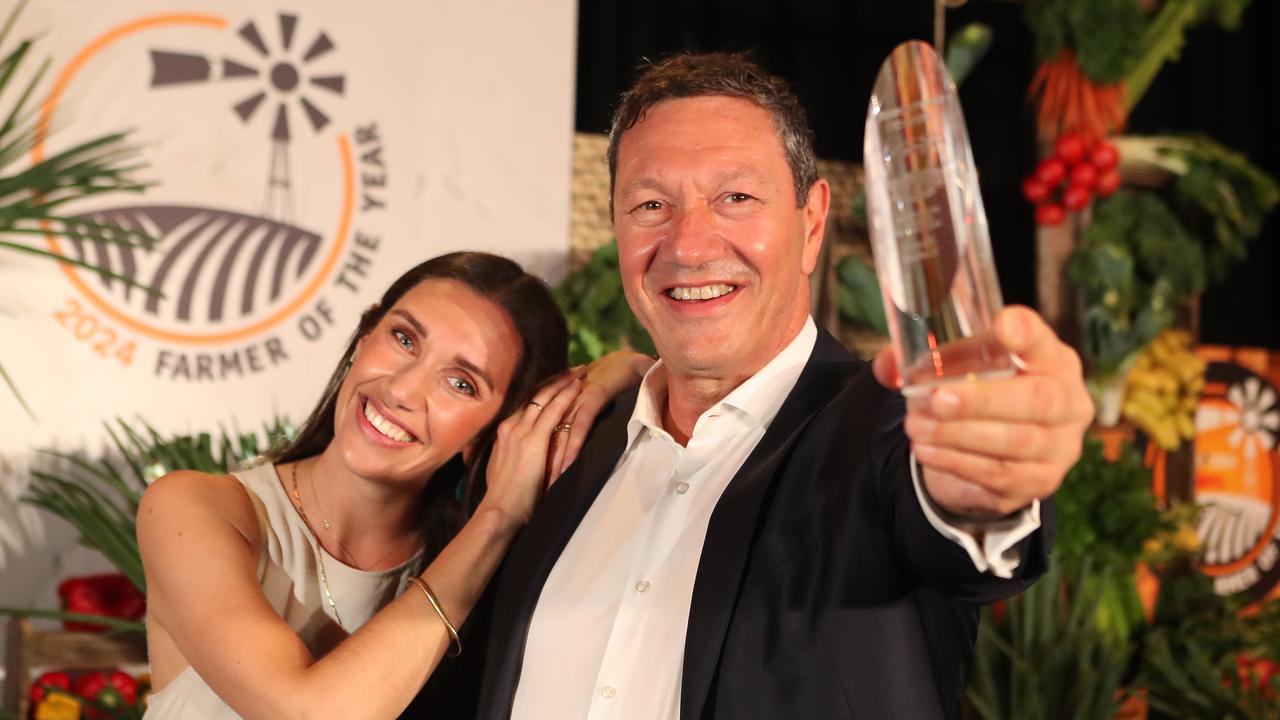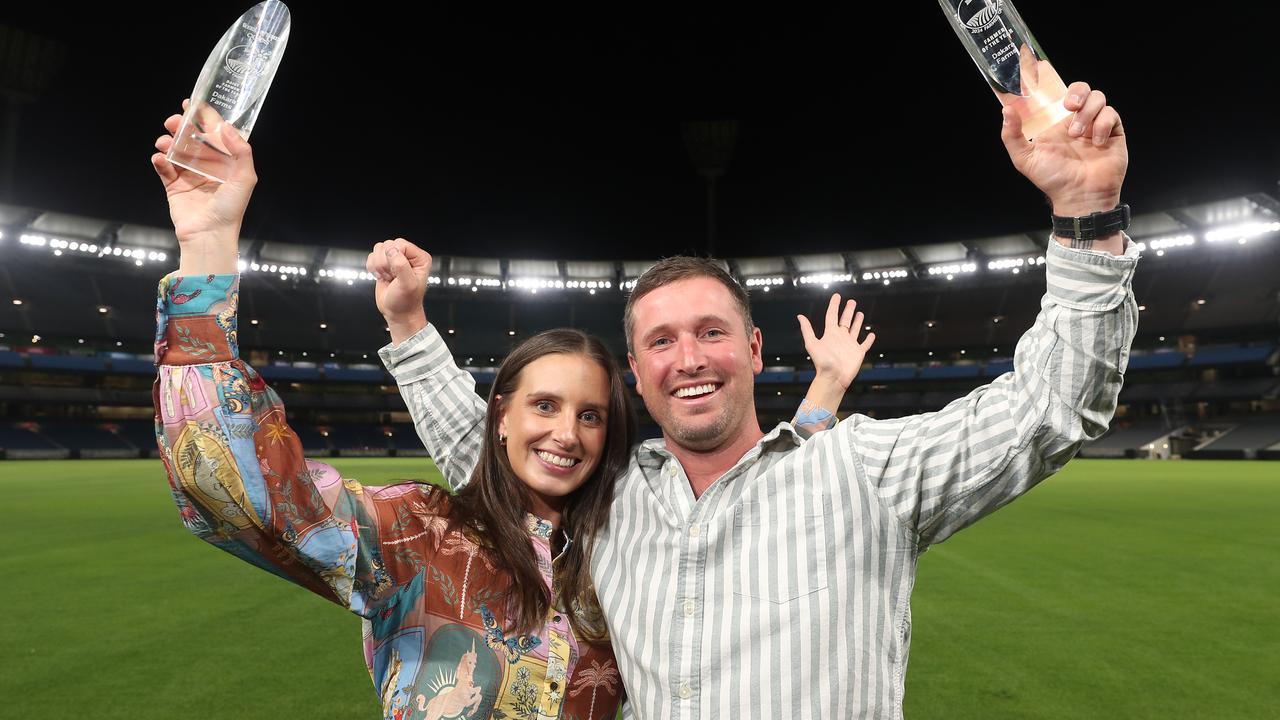Charlie Arnott of Charlie Arnott’s Natural Grass Fed Beef continues family tradition
ARNOTT’S biscuits are a giant of the Australian food landscape.

ARNOTT’S biscuits are a giant of the Australian food landscape.
Or at least they were until the US Campbell Soup Company took them over in 1997.
So it is fitting Charlie Arnott, the great-great-great grandson of the original biscuit founder, is again making a mark on the Australian food landscape, albeit in the form of beef cattle.
“As our website says, we’ve gone from biscuits to beef,” Charlie said.
It was in 1997 that Charlie first took over the running of the-now 2020ha family farm at Boorowa, in southern NSW, which his father had bought in 1970 (after working on the Arnott’s factory floor).
Like his father, Charlie continues with Shorthorn cattle, currently running 550 self-replacing breeding cows, alongside 400 Merino wethers (a trading opportunity, but with plans to incorporate up to 1000 breeding ewes for prime lambs in coming years).
For the first time, maiden Shorthorn heifers will this month be artificially inseminated with Wagyu semen to help with ease of calving.
TURN OF EVENTS
FOR many years Charlie ran the farm conventionally, like his father, selling trade cattle at 350-450kg through either the Dubbo or Wagga Wagga saleyards, as well as to feedlots.
But more recently he has made some radical changes to the management of the farm, which is reaping financial benefits.
A decade ago he changed production to become organic and biodynamic (not certified), which has been such a success that in August he was named Landcare Australia Sustainable Farming Ambassador.
Then last year Charlie was among the first to become accredited with the Pasturefed Cattle Assurance System, which sees him dispense with saleyards and feedlots to sell cattle through Teys Australia at a premium price.
Confident he was producing top=quality meat, last year he started value-adding, selling through the Charlie Arnott Natural Grass Fed Beef brand, with about three cattle a fortnight slaughtered at 450-550kg at the Cowra abattoir, butchered locally and sold in 20kg meat boxes to customers around Sydney and Boorowa.
“The changes all started because I knew we needed to do something different and needed to be more environmentally conscientious,” said Charlie, who is married to Angelica and has three children. “I knew there had to be a better way.
“Back when I was conventional I used to produce commodities — wheat, wool, cattle. The biggest change I made was when I changed my attitude, that I was responsible for growing food and feeding people, which automatically made me more responsible for what I produced, the welfare of the animals and the management of the landscape.”
CYCLE OF LIFE
COWS are joined in October for a July calving. Charlie said his grandmother’s family ran a Shorthorn stud, with that lineage still used in the herd, and the breed chosen because they were calm, great mothers, good milkers, with ideal marbling traits and a good feed efficiency.
He said they had decided to introduce Wagyu AI to maiden heifers, and a Wagyu bull next year, to mitigate the risk of calving problems.
Cattle are cell grazed entirely on pastures, with occasional supplementary feed of their own cut straw.
Charlie sows annual pasture crops of oats or triticale to various paddocks, ploughing in to help germinate grasses and open up the soil for rainfall. Occasionally he’ll improve pastures with phalaris and cocksfoot.
He said he kept records to ascertain grass volumes.
“We have a very good understanding of how much grass is growing at any one time. It’s a formula we use based on rainfall records (the area receives an average 625mm), grass growth and stocking numbers. We can be very accurate based on experience and tweak stock numbers accordingly,” he said.
“We always know how much grass is in front of us.”
In addition, he said, being organic and biodynamic underscored the health and biology of the soil and pastures.
MAGIC BREW
THE Arnotts make a range of biodynamic preparations, including cow horn manure and cow pat pit (lactating cow manure with basalt dust and eggshell), liquid seaweed fertiliser, worm tea, compost, which they spray on to pastures twice a year.
“I’d 100 per cent recommend this to any farmer. Sometimes, from an animal production point of view if sheep, for instance, have been continually drenched and backlined you can have losses because they need time to improve their resilience.
“But as soon as you’ve changed production methods, it’s much cheaper, you get a better product and it’s more marketable.”
Charlie’s beef was made all the more marketable when he became PCAS accredited.
Rather than relying on saleyards and feedlots, he uses an agent to sell through Teys Australia (although if destocking, cows and calves may still be sold through the yards).
The agent organises the transport and Teys organises the kill and takes delivery of the carcass, weighs it, gives it a fat score, records the quality and determines where it lands on a price grid.
“Teys pays a 30-70 cent premium on PCAS animals over and above what someone else would pay. It’s an agreed price that Teys provides every month,” Charlie said.
“For a little extra effort we get a healthy premium for certified animals and I know the price before an animal leaves the property.”
CASHING IN
HE said the next obvious step to securing a premium was to value-add, with consumers hyper vigilant for chemical-free meat with a backstory.
“We were doing everything right but we were still operating as price takers. All our ducks lined up and so we bit the bullet last year,” he said.
Charlie said within 18 months he envisaged most cattle would go to the Charlie Arnott Natural Grass Fed Beef brand, with the number currently about 10 per cent.
The next move would be to value-add lamb, as well as pork from his small drove of Wessex saddlebacks, and eggs and meat from his chooks, he said.
“I make great bread but I’ve married an Italian girl who is a wonderful cook, so I leave that side of food to her,” he said.


